Composition and Characteristics
321 stainless steel is specially formulated to resist the problems that can arise at high temperatures, thanks to its carefully balanced composition.
The addition of titanium differentiates 321 stainless steel from other austenitic grades like 304 and 316, by providing stability at high temperatures and preventing the precipitation of chromium carbides. This ensures that 321 stainless steel retains its strength and corrosion resistance even after prolonged exposure to heat.
Key Properties
321 stainless steel coil offers a range of properties that make it particularly suitable for high-temperature applications:
Excellent Resistance to Intergranular Corrosion: The inclusion of titanium in 321 stainless steel prevents the formation of chromium carbides during welding or prolonged exposure to high temperatures, which in turn mitigates the risk of intergranular corrosion.
Superior High-Temperature Strength: 321 stainless steel retains its mechanical strength even at elevated temperatures, making it suitable for use in environments where other materials might soften or lose integrity.
Good Overall Corrosion Resistance: While optimized for high-temperature environments, 321 stainless steel still offers excellent general corrosion resistance, particularly in environments that do not involve strong acids or chlorides.
Good Formability and Weldability: Despite its specialized high-temperature capabilities, 321 stainless steel can still be easily formed and welded, offering versatility in fabrication.
Non-Magnetic in the Annealed Condition: Like other austenitic stainless steels, 321 is non-magnetic when annealed, which can be an important factor in specific applications.
Applications of 321 Stainless Steel Coil
321 stainless steel coil is widely used in applications that require resistance to high temperatures and corrosive environments. Some of the most common applications include:
Aerospace Industry: 321 stainless steel is used in aircraft exhaust manifolds, turbine engine parts, and other high-temperature components where durability and resistance to oxidation are critical.
Chemical Processing: The material’s resistance to intergranular corrosion makes it ideal for chemical processing equipment, including heat exchangers, tanks, and piping systems.
Petrochemical Industry: 321 stainless steel is commonly used in refinery equipment, particularly where exposure to high temperatures and corrosive substances is common.
Thermal Processing Equipment: The material’s high-temperature stability makes it a good choice for furnace components, heat shields, and other equipment that must endure prolonged heat exposure.
Automotive Industry: 321 stainless steel is often used in exhaust systems and other high-temperature components in vehicles, particularly in performance and high-end applications.
Advantages of Choosing 321 Stainless Steel Coil
When selecting a material for high-temperature or corrosive environments, 321 stainless steel coil offers several key advantages:
High-Temperature Stability: The inclusion of titanium ensures that 321 stainless steel retains its structural integrity and resistance to corrosion even after exposure to high temperatures.
Versatile Application: From aerospace to chemical processing, 321 stainless steel can be used in a wide range of industries where durability and performance are paramount.
Reliable Performance: Whether in aggressive chemical environments or under high thermal stress, 321 stainless steel provides consistent and reliable performance, reducing maintenance and downtime.
Ease of Fabrication: Despite its specialized properties, 321 stainless steel remains easy to form and weld, allowing for versatile fabrication and design options.
Conclusion
321 stainless steel coil is a specialized material designed to perform in high-temperature and corrosive environments. Its unique composition and properties make it the ideal choice for industries where standard stainless steels might fail. Whether you are working in aerospace, chemical processing, or any other field that demands high-temperature performance and resistance to corrosion, 321 stainless steel coil offers the durability and reliability you need. Explore our range of 321 stainless steel coils today and find the perfect material for your most demanding applications.
Common surfaces

Stainless Steel Standards Comparison Table
| STS | USA | UNS | CHINA | EURONORM | RUSSIA | SWEDISH | JAPANESE | |
|---|---|---|---|---|---|---|---|---|
| GRADE | AISI/ASTM | NO | GB | NO | NAME | GOST | SS | JIS |
| 201 | 201 | S20100 | 12Cr17Mn6Ni5N | 1.4372 | - | - | - | SUS 201 |
| 301 | 301 | S30100 | 12Cr17Ni7 | 1.4310 | X 12 CrNi 17 7 | - | 2331 | SUS 301 |
| 303 | 303 | S30300 | 1Cr18Ni9MoZr | 1.4305 | X 10 CrNiS 18 9 | - | 2346 | SUS 303 |
| 304 | 304 | S30400 | 06Cr18Ni9 | 1.4301 | X 6 CrNi 18 10 | 08KH18N10 06KH18N11 |
2332 | SUS 304 |
| 304L | 304L | S30403 | 022Cr19Ni10 | 1.4307 | X 3 CrNi 18 10 | 03KH18N11 | 2352 | SUS 304L |
| 316 | 316 | S31600 | 0Cr17Ni12Mo2 | 1.4401 | X 6 CrNiMo 17 12 2 | - | 2347 | SUS 316 |
| 316L | 316L | S31603 | 022Cr17Ni12Mo2 | 1.4404 | X 3 CrNiMo 17 12 2 | - | 2348 | SUS 316L |
| 316Ti | 316Ti | S31635 | 0Cr18Ni12Mo2Ti | 1.4571 | X 6 CrNiMoTi 17 12 2 | 08KH17N13M2T 10KH17N13M2T |
2350 | - |
| 321 | 321 | S32100 | 0Cr18Ni11Ti | 1.4541/1.4878 | X 6 CrNiTi 18 10 | 12KH18N10T | 2337 | SUS 321 |
| 347 | 347 | S34709 | 0Cr18Ni11Nb | 1.4550 | X 6 CrNiNb 18 10 | - | 2338 | SUS 347 |
| 309S | 309S | S30908 | 0Cr23N13 | 1.4833 | X 6 CrNi 22 13 | 20KH23N18 | - | SUS 309S |
| 310S | 310S | S31008 | 06Cr25Ni20 | 1.4842 | X 6 CrNi 25 20 | 20KH25N20S2 | 2361 | SUS 310S |
| 416 | 416 | S41600 | Y1Cr13 | 1.4005 | X12CrS13 | - | 2380 | SUS 416 |
| 2205 | 2205 | S32205/S31803 | 00Cr22Ni5Mo3N | 1.4462 | X2CrNiMoN22-5-3 | 02Ch22N5AM2 | 2377 | SUS 329J3L |
| 2507 | 2507 | S32750 | 00Cr25Ni7Mo4N | 1.4410 | X 2 CrNiMoN 25-7-4 | - | - | - |
| 904L | 904L | N08904 | - | 1.4539 | - | - | - | - |
| 254SMO | 254SMO | S31254 | - | 1.4547 | X1CrNiMoCuN20-18-7 | - | 2378 | - |
| 253MA | 253MA | S30815 | - | 1.4835 | X9CrNiSiNCe21-11-2 | - | 2368 | - |
| 17-4PH/630 | 17-4PH/630 | S17400 | 0Cr17Ni4Cu4Nb | 1.4542 | X5CrNiCuNb16-4 | 05Ch16N4D2B | - | SUS630 |

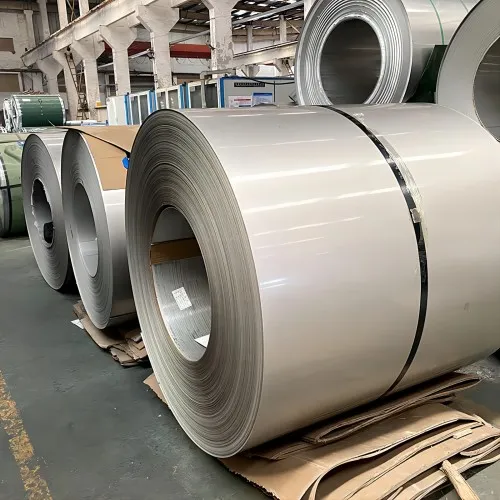 321 stainless steel coil is a high-performance material that is particularly well-suited for applications requiring enhanced resistance to intergranular corrosion after exposure to high temperatures. As part of the austenitic stainless steel family, 321 stainless steel contains titanium, which stabilizes the alloy against the formation of chromium carbides at elevated temperatures.
321 stainless steel coil is a high-performance material that is particularly well-suited for applications requiring enhanced resistance to intergranular corrosion after exposure to high temperatures. As part of the austenitic stainless steel family, 321 stainless steel contains titanium, which stabilizes the alloy against the formation of chromium carbides at elevated temperatures. 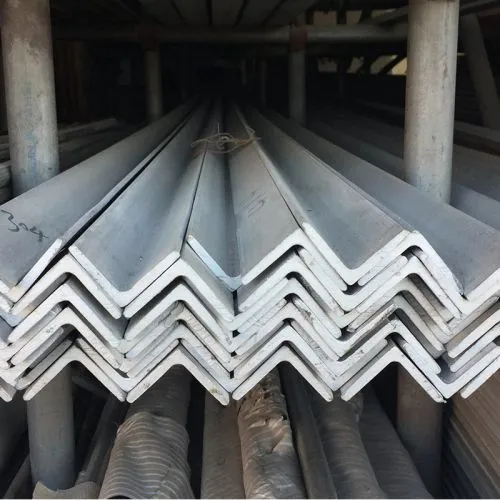 Stainless steel angle bar
Stainless steel angle bar
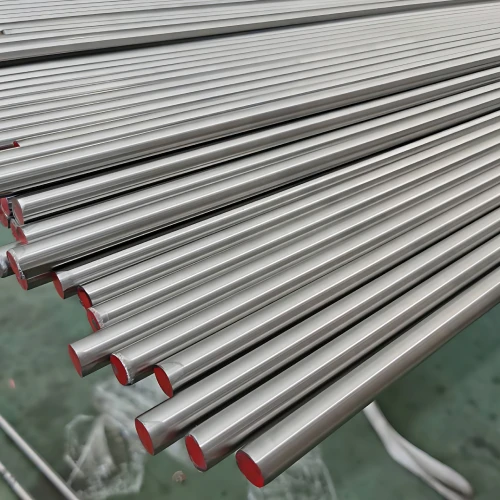 AISI 904L Stainless Steel Bar N08904 1.4539
AISI 904L Stainless Steel Bar N08904 1.4539
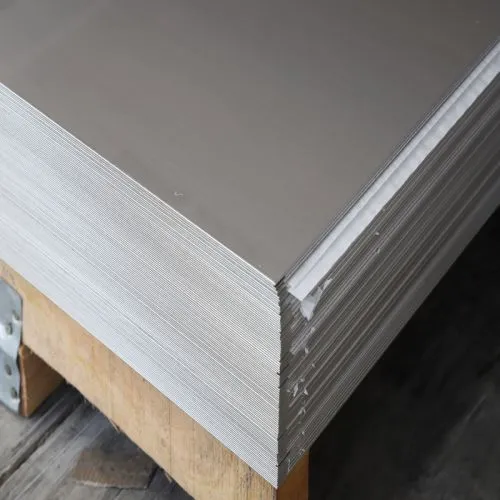 AISI 444 Stainless Steel Sheet SUS444 1.4521
AISI 444 Stainless Steel Sheet SUS444 1.4521
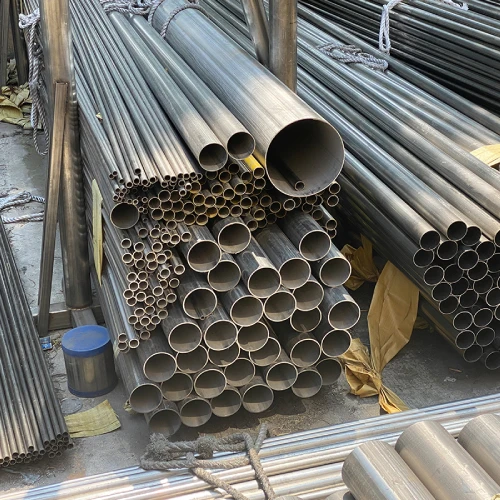 AISI 436 Stainless Steel Tube SUS436 1.4536
AISI 436 Stainless Steel Tube SUS436 1.4536
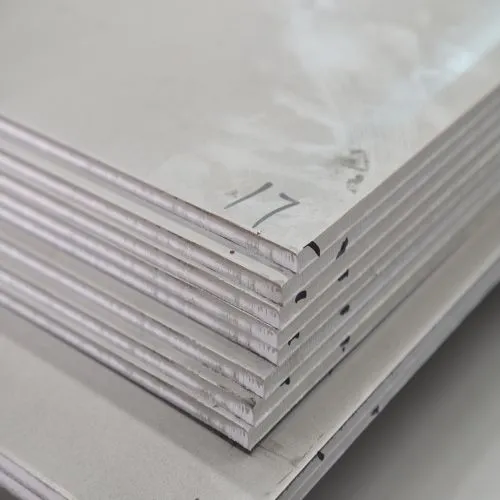 2205 Stainless Steel Plate S32205 1.4462
2205 Stainless Steel Plate S32205 1.4462
